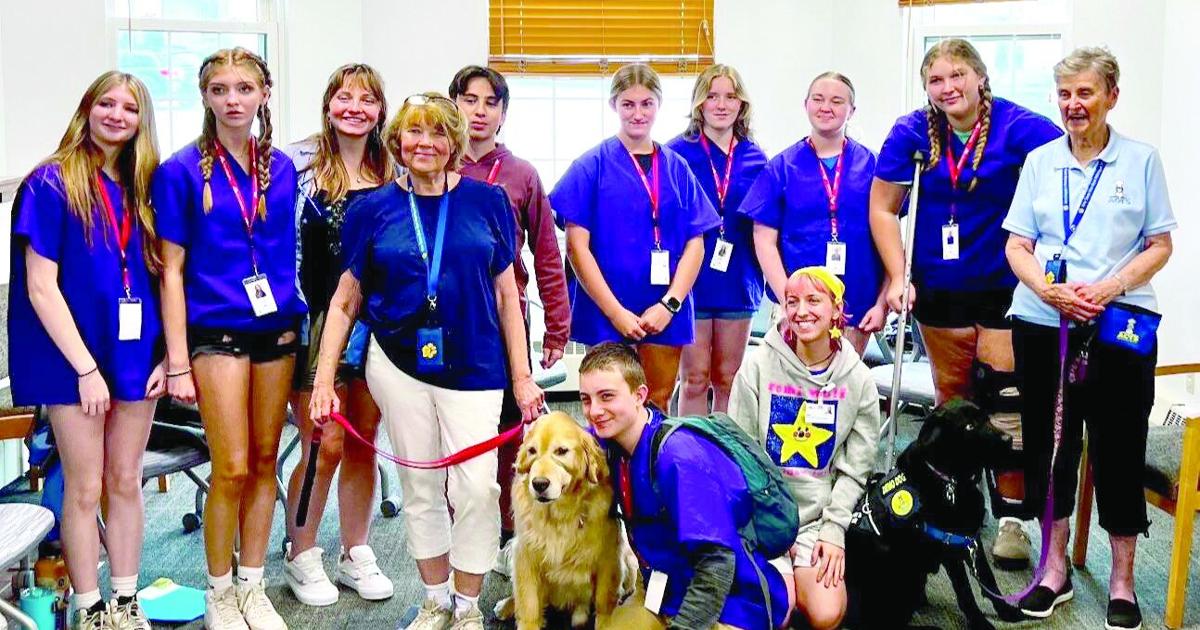Compassion Therapy Dogs Connect with Campers


The Transformative Role of Therapy Dogs in the Mount Washington Valley Community
CONWAY, NH — Since the outset of the year, therapy dogs from ACTS of Compassion have been making a substantial impact across schools, hospitals, and camps in the Mount Washington Valley and its nearby locales. The initiative focuses on leveraging the natural comfort and companionship offered by dogs to engage with children and families in various therapeutic settings, thereby enhancing emotional and psychological well-being.
The ACTS of Compassion (A Community Teaching Service) program is dedicated to fostering understanding and appreciation for the role of service animals in community health. Volunteers, including Nan Ippolito with her therapy dog Max Jr., Jackie Gaudes with Fig, and Sally Burke with Gertie, have become familiar and reassuring presences. Their efforts are not only about providing comfort but also about educating the community on the benefits associated with therapy dogs.
Therapy dogs serve diverse roles in different environments. In educational settings, they help alleviate anxiety, enabling students to participate more actively in their learning experiences. In hospitals, the gentle presence of therapy animals can significantly reduce stress for patients and their families, promoting a conducive healing environment. Camps often utilize therapy dogs to facilitate social interaction and build confidence among children, particularly those with special needs or anxiety disorders.
The effectiveness of therapy dogs in therapeutic settings has been supported by numerous studies, which indicate that interactions with these animals can lower blood pressure, ease depression, and reduce feelings of isolation. The bond between humans and dogs often leads to a release of oxytocin, the “feel-good” hormone, which fosters emotional connections and promotes a sense of safety and stability.
As ACTS volunteers continue their rounds, they not only provide immediate comfort and companionship but also work to destigmatize the use of service animals in various contexts. Their advocacy helps clarify misconceptions and informs community members about the professional training and responsibilities associated with therapy work.
By fostering a deeper understanding of the positive impacts of animal-assisted therapy, ACTS of Compassion aims to create a more compassionate environment that understands and embraces the integral role that therapy dogs can play in healing and support. As their presence continues to grow in the Mount Washington Valley, the lasting effects of these gentle canines underscore the importance of community outreach and emotional wellness initiatives.
In conclusion, the contributions of ACTS of Compassion and their dedicated volunteers highlight a significant intersection of animal companionship and psychological health, reinforcing the need for continued support and development of such programs in the region and beyond.






